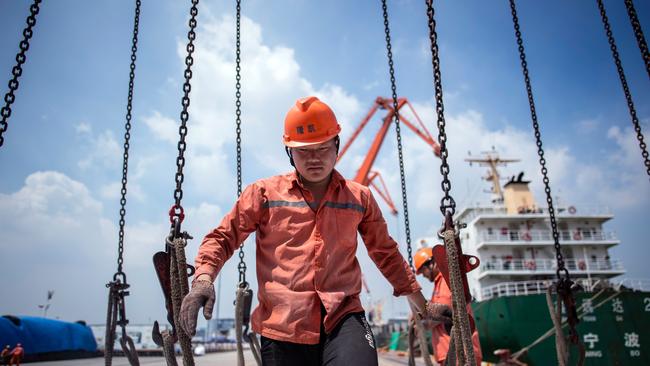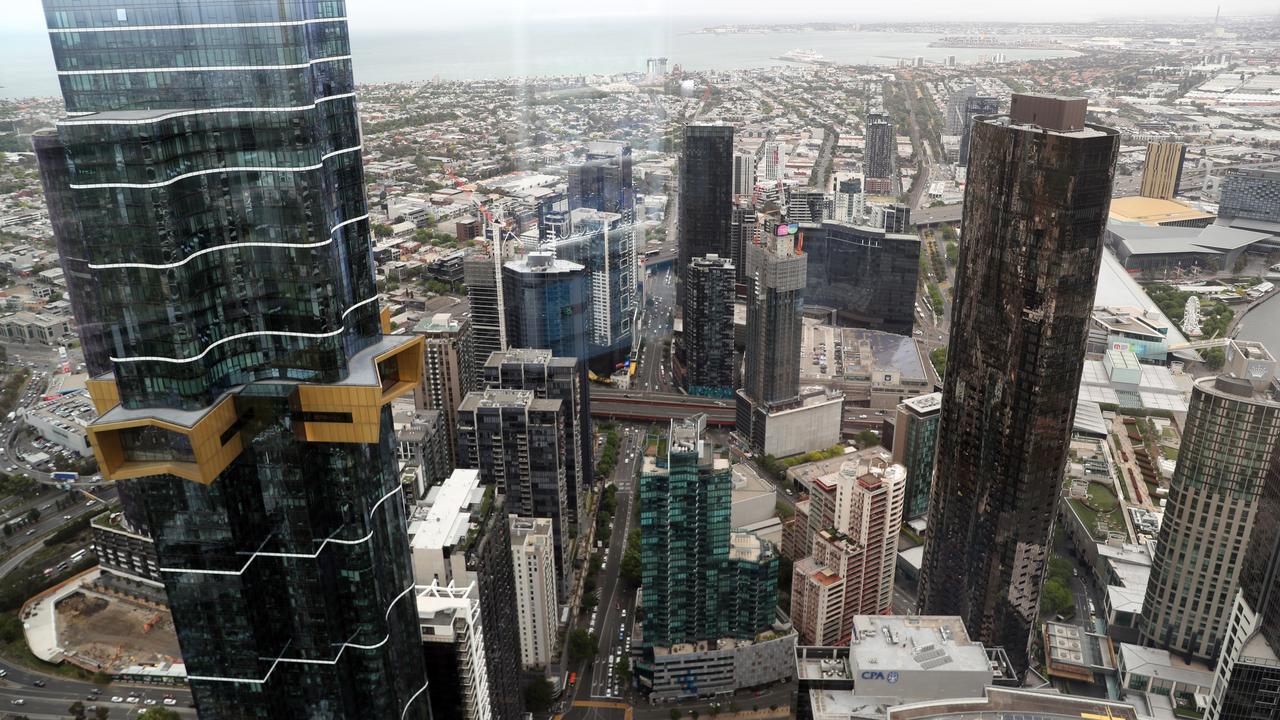Trade war could trigger global recession, warns KPMG
The Sino-US trade stoush will hurt the local economy and could cause a global recession if it intensifies, warns KPMG.

The trade war between the United States and China will bring losses to the Australian economy and possibly a global recession if it continues to intensify, analysis by accounting firm KPMG shows.
With the US about to raise the value of Chinese goods on which punitive tariffs are imposed from $US50bn to $US200bn, KPMG says Australia’s economy stands to lose $36bn over the next decade, even if there is no further escalation.
KPMG chief economist Brendan Rynne says Australia has very little direct stake in the trade conflict, with the United States unlikely to take trade actions that targeted here, because it already runs a large bilateral trade surplus.
However, Australia will be hurt by reduced purchases from China as its economy slows. Commodity prices will also fall.
Mr Rynne says there is a risk that the trade conflict will spread to other countries as firms in both China and the United States move to dump goods they can no longer sell in each others’ markets in third countries.
KPMG has modelled a “worst case” scenario in which the United States imposes 25 per cent tariffs on all its $US500bn imports from China which in turn retaliates imposing matching tariffs on all its $US130bn imports from the US.
If this lead to other nations raising tariffs by 15 per cent to protect their economies from dumped produce, KPMG estimates the result would be a global recession.
“The US would fare worse than the world as a whole, its GDP being around 5.3 per cent lower than if all-out trade war had not occurred. China would be worst hit with a loss of GDP of almost 6 per cent after a decade,” the report says.
Australia would also face recession, with its GDP cut by about 3.5 per cent, and losses over a decade rising to $364bn.
“Job losses would also be significant under such a scenario, falling almost 60,000 and pushing real wages down by about $16 a week for the average worker.”
The modelling by KPMG confirms the best strategy for the rest of the world is to resist the political pressure to join a US-China trade war, despite the likelihood there may be increased domestic pressures to protect local industries from any displaced US and Chinese products looking for a new market.
The KPMG report comes as the United States prepares to extend tariff protection from Chinese imports in the wake of failed negotiations between junior officials of both countries. President Trump has, in several tweets, warned that tariff barriers would be extended to all Chinese imports if it retaliated.
The modelling shows that the current level of tariff protection will hurt both China and the United States, cutting the size of their economies by around 0.6 per cent over the next four years while global economy would be about 0.4 per cent smaller.
Mr Rynne said the imposition of tariffs had cascading effects through the economy. They cause an immediate reduction in exports and GDP, while reduced tax income would push affected governments more deeply into debt.
The increased debt would push interest rates higher, which would squeeze domestic consumption and push exchange rates higher, further constraining exports.
“This combination of factors influencing both domestic and external demand tends to pull economic activity down, essentially for no good reason.”



